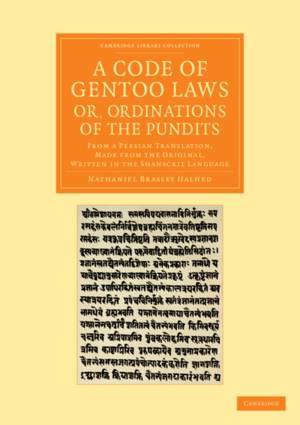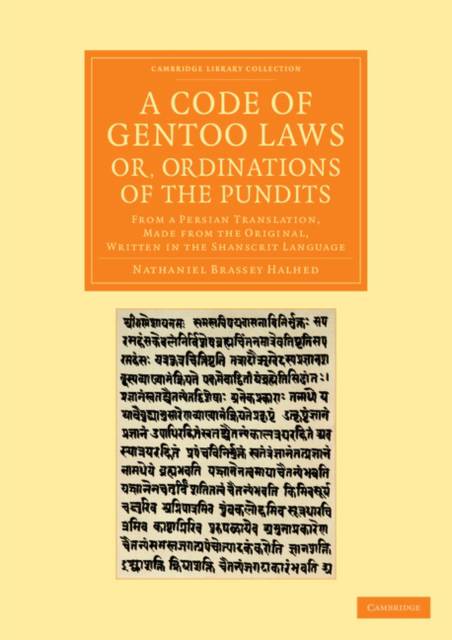
- Afhalen na 1 uur in een winkel met voorraad
- Gratis thuislevering in België vanaf € 30
- Ruim aanbod met 7 miljoen producten
- Afhalen na 1 uur in een winkel met voorraad
- Gratis thuislevering in België vanaf € 30
- Ruim aanbod met 7 miljoen producten
Zoeken
A Code of Gentoo Laws; or, Ordinations of the Pundits
From a Persian Translation, Made from the Original, Written in the Shanscrit Language
Nathaniel Brassey Halhed
€ 120,95
+ 241 punten
Omschrijving
In the second half of the eighteenth century, the English philologist Nathaniel Brassey Halhed (1751-1830) was employed in India by the East India Company. There he was asked to translate into English the Hindu legal code, so that the British authorities could better understand native laws. The result was this accomplished work, first published in 1776, which served to correct Western misinterpretations of Hindu law, and to show that it was fully adequate for application in Bengal, and also the most appropriate system, as opposed to Western-style laws, in the region's cultural and religious milieu. In preparing it, Halhed sought advice from experienced native lawyers, who provided verifications of both the Persian version and its Sanskrit original. Accompanied by the translator's preface and a glossary, this extensive code remains of relevance to scholars of Indian law and history.
Specificaties
Betrokkenen
- Auteur(s):
- Uitgeverij:
Inhoud
- Aantal bladzijden:
- 478
- Taal:
- Engels
- Reeks:
Eigenschappen
- Productcode (EAN):
- 9781108056373
- Verschijningsdatum:
- 28/03/2013
- Uitvoering:
- Paperback
- Formaat:
- Trade paperback (VS)
- Afmetingen:
- 210 mm x 297 mm
- Gewicht:
- 1133 g

Alleen bij Standaard Boekhandel
+ 241 punten op je klantenkaart van Standaard Boekhandel
Beoordelingen
We publiceren alleen reviews die voldoen aan de voorwaarden voor reviews. Bekijk onze voorwaarden voor reviews.











